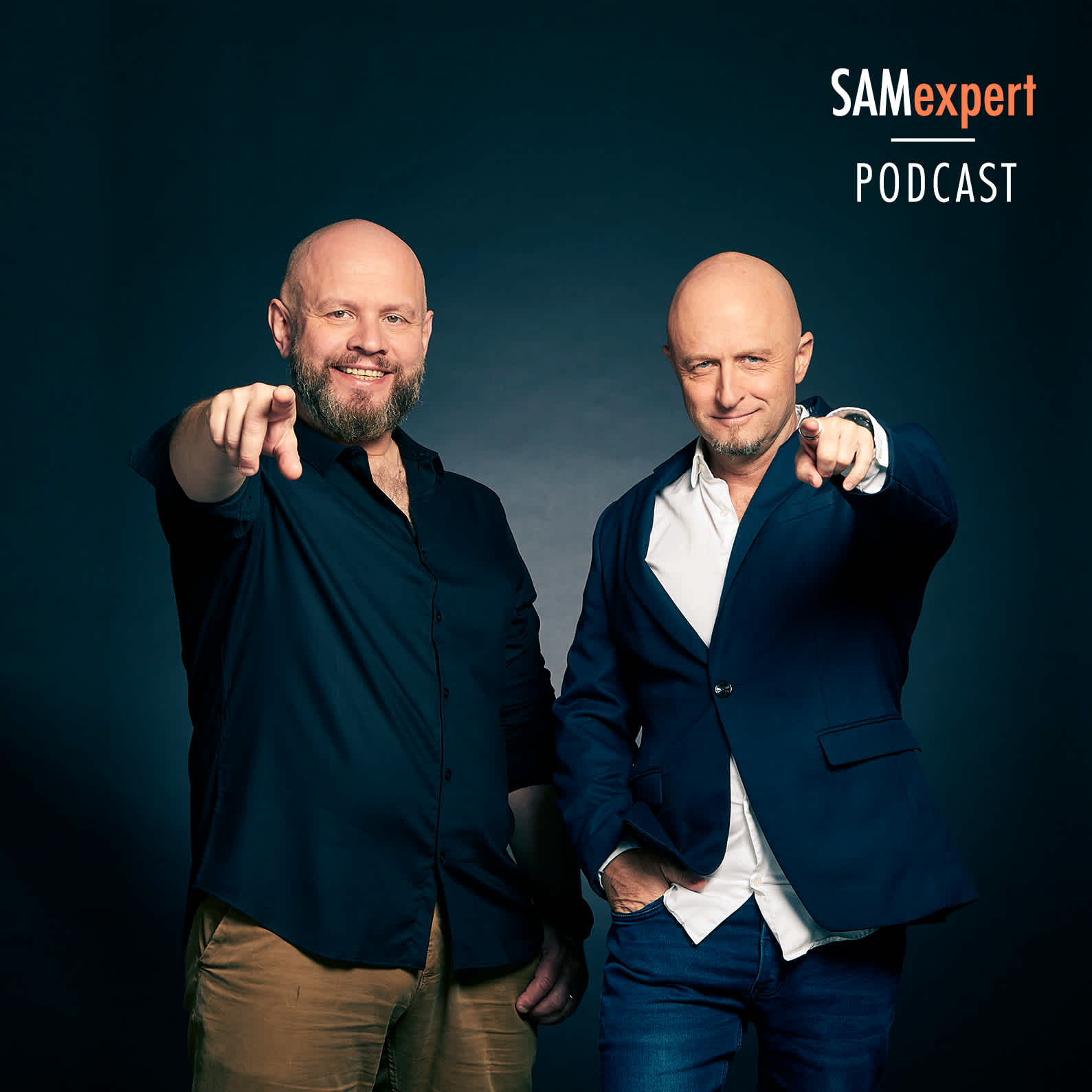Microsoft licensing in FinOps and SAM today

In this episode, we discuss the ongoing relevance and complexity of Microsoft licensing today. Despite the growth of cloud computing, Microsoft licenses remain central to most organisations' IT infrastructure. Licensing is not becoming simpler, with Microsoft introducing changes that significantly impact the ecosystem.
The impact of recent changes like Bring Your Own License (BYOL) on cloud migration strategies.
The persistence of licenses despite the growth of cloud computing.
Microsoft's shift away from consumption-based models and towards traditional licensing.
Azure Hybrid Benefit (AHUB) and its potential for cost savings.
The lack of official Microsoft licensing training and the need for independent resources.
Key areas to focus on: Microsoft 365, cloud licensing, and Power Platform.
The importance of understanding various Microsoft licensing agreements.
The role of Software Asset Management (SAM) tools in managing licenses effectively.
Episode Transcript
Microsoft is probably the centrepiece of every modern organisation. Even companies that are Google-centric or Amazon-centric still have quite significant investments in Microsoft licenses, software, and cloud services.
Microsoft has become almost a commodity in 2024, but that's precisely the problem and the reason why it's important. I don't need to convince you if you're familiar with Software Asset Management. That's probably the first vendor that you need to look after.
The Microsoft licensing problem right now is that it's not becoming easier. Some months, there are no changes in Microsoft licensing, and sometimes, Microsoft comes up with something that drastically changes the entire Microsoft ecosystem. For example, probably the most significant change that happened a year and a half ago was when they allowed every license on the subscription to be brought to any cloud platform or provider.
You may think it doesn't affect on-premises environments, but companies that move to the cloud and want to pay less when they move to the cloud need to take care of that. If you're looking after their licensing estate, Bring Your Own License becomes quite a significant way to reduce cloud procurement costs.
The Failed "Cloud promise"
The cloud didn't eliminate licenses. I remember being part of a conference in about 2012 when people were almost fanatically saying, "The cloud is coming; we're going to get rid of licenses." That was 12 years ago. That didn't happen. And in the Microsoft world right now, Microsoft is still attached to its licenses. They still push their licensing sales.
Licenses, including Microsoft licenses, aren't going anywhere. If you are familiar with service provider licensing, then I have news for you: Microsoft is trying to push out the service provider licensing program. It still exists and will probably exist for another five years, but it's one of those programs where clients pay just for consumption, for the usage of certain cloud-hosted services. Microsoft is trying to replace it with CSP licenses, pushing clients back from cloud consumption to licenses.
Azure Hybrid Use Benefit
So, I guess that's already enough to understand that Microsoft software licensing isn't going anywhere. Azure Hybrid Benefit is a big deal, by the way, if we talk about migration to the cloud. Microsoft has this program: When you move your Windows and SQL Server workloads to Azure, you can bring your own licenses.
Although it provides minimal benefits for SQL Server, on Windows Server licenses, it offers up to 90 per cent savings on licensing costs in Microsoft Azure. This is a massive way to save costs for a sizable organisation—the organisation that you may be looking after—and it needs to be done right.
You need to understand how it works. You need to understand that, for example, I'll go a bit technical, so please excuse me. For example, if you use Azure Test-Dev Subscriptions — Test and Development Subscriptions — then AHUB should not be used there because those virtual machines are already discounted. They already don't require licenses. If you assign licenses there, you'll be losing money.
Microsoft Does Not Teach Licensing Anymore: What To Do?
The problem that professionals in this area face is that Microsoft stopped teaching licensing.
And it's deliberate. They want everybody to migrate to Azure and learn how that works. Ultimately, they want to move all clients to the cloud. But as a big corporation, there's still an internal struggle. You may notice that a part of Microsoft wants everybody to migrate to Azure. Another part of the organisation still holds to the licensing paradigm and wants companies to continue buying licenses.
The only resource right now that is supported by Microsoft, where you can still learn Microsoft licensing, and I encourage you if you don't know it; it's not a replacement for proper training, it's not a replacement for proper education, but it's an excellent starting point, or if you want to test how well you know Microsoft Licensing, it's a free of charge resource, GetLicensingReady.com. As a consequence of that, there are no certification programs right now. You can't be certified by Microsoft on licensing. So, how do you prove your worth? You need to go after independent certifications.
The changes are so complex. What we wrote three years ago as up-to-date exam questions is still relevant. However, the percentage of usage of those products and those scenarios is decreasing because everything is moving to the cloud.
Where To Begin Learning Microsoft Licensing
Everything is moving towards Microsoft 365 subscriptions, which are also online cloud subscriptions. So, if you haven't started or you are a Microsoft beginner, you know the basics, and you want to continue improving your skills in that area so you will be able to manage Microsoft licenses and, most importantly, the costs of those licenses, I would suggest going after Microsoft 365 licensing as the first step.
Just learn as much as you can about packages, add-ons, and how that works. The licensing model is very simple—it's per user. The complexity is in how you combine those. We call them persons or profiles: an information worker, a blue-collar worker, a delivery driver. What components do they need, and how can they buy them at the cheapest price possible?
There is a very good resource. It's free of charge. The only problem is that it hasn't been updated in a year. It's called m365maps.com. You can find resources there and start learning there.
The second point is cloud licensing. I already mentioned Azure Hybrid Use Benefit. It's a simple topic. You can learn it quickly, but pay attention to detail. Ask, read the blogs, follow us on our YouTube channel, and learn. Bring your own license. It is not just Azure Hybrid Use Benefit, which is a small part of bringing your own license, but the entire Bring Your Own License program because that will become increasingly important in the years to come.
I'm not sure if that will surprise you, but I would put Power Platform in third place. Power Apps and Power Platform are increasingly being adopted by companies, and they are very complex in terms of licensing. And if you become a guru in Power Platform, you will always find that niche for yourself where you'll be in demand.
Only after that would I suggest learning servers like Windows Server and SQL Server because, yes, they are important. They're very important, but they're not at the forefront of a client's interest unless it's your role. Unless you were put in a position where you needed to manage on-premises server licensing, then by all means. I'm giving you generic advice, but you can choose your own priorities.
It also probably doesn't make sense to pay much attention to traditional desktop licensing because it is going away.
SAM and FinOps - Friends or Enemies?
Of course, you can learn Azure. It's more of a FinOps topic, but speaking of SAM versus FinOps, I would say if you're only beginning your career, choose one. Choose one, but remember that although they're different, they must coexist. The FinOps team should not forget that they may use existing licenses. And who tells them what licenses they may use? And whether those licenses exist? And how do you buy and manage them? It is the Software Asset Management Department.
Enterprise Agreement and MCA-E: Learn the Differences ASAP
So, When you've learned Microsoft licensing, learn about the agreements. It's not only about how to license a particular product. It's also about how to license a product via a particular Microsoft licensing agreement.
And if you know the term CSP, you probably do if you've touched Microsoft for a while. CSP is utterly different from the Enterprise Agreement. And if you know licensing via CSP, it doesn't necessarily mean that you know licensing through an Enterprise Agreement and vice versa. CSP is becoming more and more critical for large organisations because Microsoft promised that they would migrate every enterprise in the following years, they said two years. I don't believe that. I don't think it's going to happen in two years. It won't. You can take me on this promise. But they are migrating everybody onto the Microsoft Customer Agreement, which is CSP, essentially, but for large organisations. It's called MCA.
It is the future of Microsoft licensing, and it's different from what you may have known before. If you know about Software Assurance, remember that MCA or CSP doesn't have Software Assurance. The same benefits are acquired differently, so you must learn and understand that.
I would also suggest that you don't bother with SPLA. Unless you work for a provider or support service provider, don't waste your time as a beginner learning SPLA. It'll come when you need it.
A Warning about SAM Tools
You will manage Microsoft licensing in tools. Those who have tried working with tools for a while know. Remember that no tool "does Microsoft right". There is no software management tool that does Microsoft correctly out of the box. It always requires a person, you, a knowledgeable person, to interpret the data from the tool reports, to put the correct licenses in the tool, and to assign them to the right servers in the right way.
None of those tools work automatically. That's where your value is. It's not only about looking after licenses but also making sure that when you see a number in the tool, it's a trustworthy number you know is correct. Don't trust tools out of the box. Put your effort into making them work. It's your opportunity to shine.
Thank you. Goodbye, everybody.
Connect with Our Experts
Provide your details and describe your challenges, and a senior expert will get back to you shortly.
Prefer a call?
Get things going faster with a face-to-face chat.
